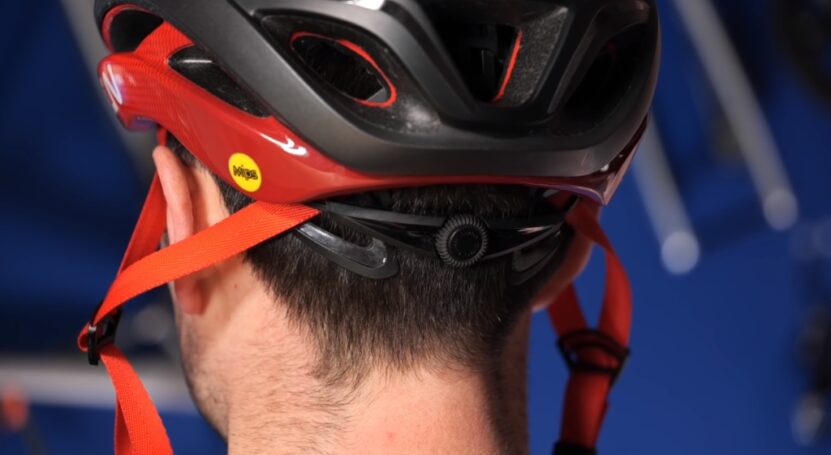A bike helmet is one of the essential things for bike riders. Some of us ride the bike for years with the same helmet and only get new if it gets lost or broken in an accident. Some legitimate reasons support the change of the old helmet.
Always remember that health is before any other adventure or life activity. The primary purpose is to protect your head, so it doesn’t affect any environmental changes or accidents. So it is wise to change the old bike helmet when you feel the damage or crash in it.
How Often Should One Replace A Bike Helmet?
One should replace the helmet if it crashes. The crashed helmet is unable to provide the proper protection to your head. However, helmet manufacturers claim the 20-year warranty of its build-up. So it only needs replacement when it crashes or compromises its integrity.
Also read: Why are bike seats so uncomfortable?
You may think that the crash is the only reason to change the bike helmet. But it is not a fact. Some other consequences also encourage the replacement of bike helmets.
Here we will share all the facts and truths regarding the bike helmets that help you quickly decide when to replace the old bike helmet.
So let’s dig into it.
Do Bike Helmets Degrade?

Do you think that bike helmets consist of biodegradable materials? Some of us believe that helmets degrade due to sun exposure, sweat, extreme temperature, and regular use. It may be true somehow scientifically, so you need the facts. So let’s see, “Do bike helmets degrade or not?”
Yes, bike helmets can degrade due to their construction material, like plastic materials. But the ratio of biodegradable bikes is low, due to which you may not notice it.
However, sweat doesn’t burn the helmet plastic as it consists of high-tech plastic with seatbelt materials as straps. So bike helmet plastic material is degradable, but the chances are meager due to the use of high-tech plastic.
Do Bike Helmets Expire?
Everything has the expiration question that customers claim at the time of purchase. Does it also affect the query of how often one should replace a bike helmet? Do you believe that bike helmets have materials that expire with time?
Helmets have different layers of safety like car seats or bike seats as a safety measure. We are not clear about the expiry date of the car seats. However, forget about seats. It is just an example. Let’s talk about whether bike helmets expire or not.
Bike helmets don’t expire unless you have a helmet from the previous decade. But it doesn’t mean that old helmet are passed if it has their structure and comes up to safety standards then it is good to go for a safe bike ride.
Now helmets come with advanced technology that lasts for more than 20 years. Still, if you want to change your bike helmet, there is no harm or disadvantage in replacing it with an advanced helmet.
How Long Do Bicycle Helmets Last?

We already said that helmets have high-tech plastic that doesn’t degrade and lasts for years or sometimes a lifetime. Bicycle helmets also have the same material to provide safety and protection to the rider’s head. But if you are not satisfied with your bicycle helmet quality, then you can replace it.
According to experts, a bicycle helmet lasts long for the entire riding life of the rider. We know that every new product in the market comes with new technology that riders admire and replace their helmet.
So if so, with your bicycle helmet, then go and upgrade yours with a new helmet. Ensure that it provides you with enough safety and protection.
When Should I Replace My Bicycle Helmet?
Beyond all the above discussion, sometimes we need a reliable reason to replace our old bike helmet. However, some incidents require helmet replacement immediately.
So if you also have the same situation, then go and change your helmet. Some typical circumstances for replacing the bike helmet include:
A Crash
The helmet is probably the minor thing that undergoes a crash in an accident due to its safety and shock-protective material. Many bike riders are curious about their bike chain instead of the helmet.
However, if your helmet involves a crash, it should be replaced immediately without any delay. You may not notice the collision from the upper surface, but it may lose its internal safety integrity.
Never compromise on the safety of a helmet. There is no better thing than your health, so the helmet must be your priority to change after having a crash or accident. In addition, it ensures your safety in following bike rides.
Visible Damage
Everyone may drop their helmet unintentionally as it may slip from their hand. So you may think it should be replaced or not after the accidental fall of the helmet.
Bike helmet manufacturers understand the rough handling of bike helmets. So they ensure that it can withstand rough handling. You can use it after falling until it starts showing visible damage.
It is expected that we forget our bike helmet anywhere and toss it somewhere. So it is advisable to replace your bike helmet when it shat showing visible damage. It is a clear sign of its integrity that we never want to compromise our bike helmets.
Bad Fit
You may not consider it as an essential factor for replacing the bike helmet. Always remember that a bike helmet must have a perfect fit according to your head size. A loose or short helmet is unable to protect your head.
So you should replace your bike helmet immediately if it comes with a lousy fit. For adequate safety and head protection, your bike helmet must be fit at your head. In addition, it helps to avoid unnecessary injuries in case of any fall or crash.
Manufacturer Standards
Bike helmet manufacturers set the safety standards that ensure adequate safety and protection of your head. So if you notice any lag in manufacturer standards, it is essential to replace a bike helmet immediately. It improves head safety.
New manufacturers focus more on the quality and safety features of bike helmets. So by replacing the bike helmet, your safety will also get upgraded.
What Are The Signs My Bike Helmet Is Compromised?

As we are repeatedly clear, a bike helmet is one of the primary things that no one wants to compromise. So you may wonder about the safety compromised signs of your bike helmet.
It is easy to access the quality of your bike helmet with visible signs. Some visible signs of a compromised bike helmet include
- Cracked outer layer
- Cracked form padding
- Bumps in the outer layer
- Torn metal or steel layer
All these signs are easy to access and straightforward symptoms of a compromised bike helmet. If you face any of the above symptoms, then it is time to replace the bike helmet.
How To Get The Most From Your Helmet?
Now it’s time to discuss some preventive care tips and tricks for your bike helmet. First, it helps to reduce the frequency of replacing the bike helmet.
It might be useful for you: Reasons Why Your Bike Brakes Are Not Gripping How To Fix
So let’s directly move towards some essential preventive measures.
Clean It
Cleaning is the key to everything to protect it from damage. Similarly, cleaning a bike helmet ensures that you will get more from it. Cleaning doesn’t affect the integrity of the bike helmet. Instead, it provides the safety standards that are up to mark during its longevity. So clean your bike helmets regularly.
Store It
Usually, we forget our bike helmets anywhere unintentionally when it is in our hands. Bike helmets can easily get banged at the back of the truck, closet door, and any other place.
So ensure that you place it in a secure place where it has less fear of crashing. The safe areas include your backpack, bike backpack, with other essential items.
However, if you forget to store your bike helmet securely and it crashes, replace it immediately without compromising your safety.
Avoid Chemical Exposure
Bike helmets have the particular purpose of protecting the rider’s head from shock, heat, and many more. But it doesn’t include the safety of chemical exposure.
Moreover, bike helmets have a specific high-tech plastic material that doesn’t withstand chemical exposure. So if you accidentally expose your helmet to harsh chemicals, then it will destroy its material.
Save From Extreme Temperatures
Every bike rider passes through different environmental conditions. So manufacturers have other helmets that withstand the specific temperature limit. So it would help if you chose your bike helmet according to your usage and riding environment.
The extreme temperature above the helmet limit may cause damage to its integrity and can also damage your head instead of providing safety.
Conclusion

So by summing up the above discussion, it is clear that bike helmets need replacement after crashes and any visible damage.
But some of us also replace our bike helmets when new safety standards come into the market, which is a good sign. It is essential to use all the safety measures when you are on two wheels and at high risk of danger.

